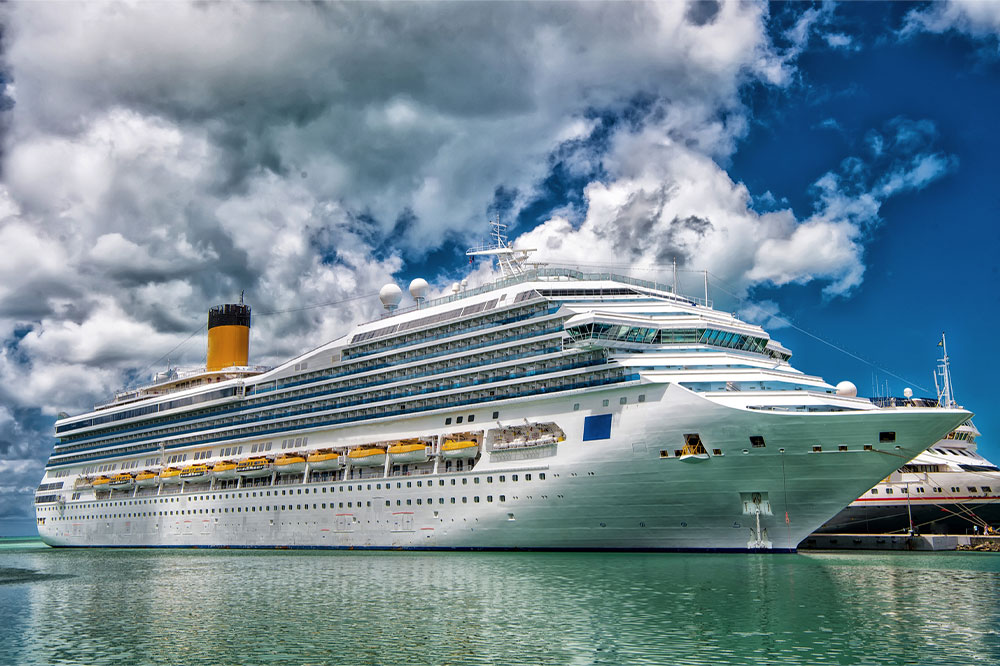
5 things one should avoid doing on a cruise
Planning a trip with friends, a family getaway, or a romantic vacation? There’s a cruise package for everything! Cruises host many fun activities for passengers, such as board games, deck parties, treasure hunts, movie nights, and even indoor skydiving. You can enjoy these as much as you want once onboard. However, there are certain things you must never do on a cruise to make the journey memorable for yourself and others.
Don’t hog the furniture in common areas
Common areas on a cruise have limited furniture. Take, for example, the chairs by the swimming pool. People often hoard these chairs for hours at a stretch for friends and family who never show up. This causes inconvenience to other passengers already at the poolside. So, use only what you need to ensure everyone is comfortable.
Don’t have personal conversations with the staff
Cruises have many staff members. So, there are strict policies regarding how staff may interact with passengers and vice versa. You might have a casual conversation with a staff member, but it’s best not to make the conversation personal. Doing so may go against the cruise’s policy and even cost the staff their job.
Don’t be mean to the crew
Cruise staff go beyond expectations, working extra-long hours and even doing double shifts to ensure passengers are happy. So be nice to the crew whenever you want something. Saying “please” and “thank you” can go a long way in showing how much you appreciate their work. A tip is another great way of showing appreciation.
Don’t stick to the buffet
Booking a cruise may cost quite a bit, and you might eat only from the buffet to make the most of what you’ve spent. But if you stick to the buffet, you might miss out on other available dining experiences on the cruise. Though it may cost a little more, you never know when you might get the opportunity again.
Don’t overpack
Many cruises don’t have luggage weight restrictions. But that doesn’t mean you should pack too much. While you might want to click pictures for social media in different outfits, it’s not worth it if you have to drag your luggage onboard. You can always use the laundry service to wash and reuse clothes.
While the excitement of the journey may prompt you to pack extensively, certain considerations can enhance your overall experience. Firstly, avoid carrying fragile items without proper protection. Cruise ship cabins can experience movement, and delicate items might be at risk during the voyage. Also, resist the temptation to skip packing a carry-on. Having essentials like treatment supplies, extra clothes, and important documents in carry-on baggage ensures you’re prepared for the initial hours onboard while waiting for your main luggage.
Furthermore, be mindful of the cabin storage size. Overpacking can lead to cluttered and cramped living spaces. Opt for smart packing, considering the cruise duration and your cabin’s storage capacity. These precautions will safeguard your belongings and make your cruise experience more enjoyable for yourself and your fellow passengers.
One might not be able to control everything that happens on a cruise, including falling ill. While a cruise may offer onboard assistance for healthcare needs, the bill can be quite high. That’s why one should purchase a comprehensive travel insurance plan to cover a percentage of health-related emergencies. Cruise travel insurance may also offer reimbursements for emergency airlifts to hospitals, missed ports, unused excursion points, cabin confinement, and lost baggage.
There are various cruise lines to choose from. Some of the best options are Celebrity Cruises, Virgin Voyages (previously known as Virgin Cruises), and Viking Cruises. Celebrity Cruises allows customers to choose the ship they would want to explore destinations in. Virgin Voyages provides a variety of onboard facilities like fitness classes, entertainment, among others. Passengers can enjoy a complimentary shore excursion in every port of call with no extra charge with Viking Cruises.
You can also consider Hurtigruten cruises and the Pacific Whale Organization that arranges award-winning whale-watching cruises. You may experience snorkeling, dinners, dolphin-watching, and much more. To find out various other activities to embark on, check out the Viator website. Furthermore, some luxury Northern European cruises involve exploring iconic castles, historic structures, and other tourist attractions that reflect a place’s cultural heritage. Reykjavik, Iceland, and Stockholm, Sweden are some of the enchanting places you can visit on a Northern European cruise. Moreover, the best Norwegian fjords cruises help you explore the best sites in Norway, from the majestic Bergen mountains to the breathtaking waterfalls of Alesund. Some cruise lines offer amazing all-inclusive cruise packages along with shore excursions and itineraries that can be customized. Consider options from Oceania cruises, American Cruise Lines, Silversea Cruises, and NCL.
If your heart longs for warm beaches instead of icy mountains, Greece is another place perfect for romantic getaways. Greek cruises will give you a taste of history, art, and natural beauty all at once. Mainland ports are at Athens, Gythion, and Katakolon, and many cruises stay back late at night to let passengers enjoy the sunsets in Santorini and nightlife in Mykonos.







